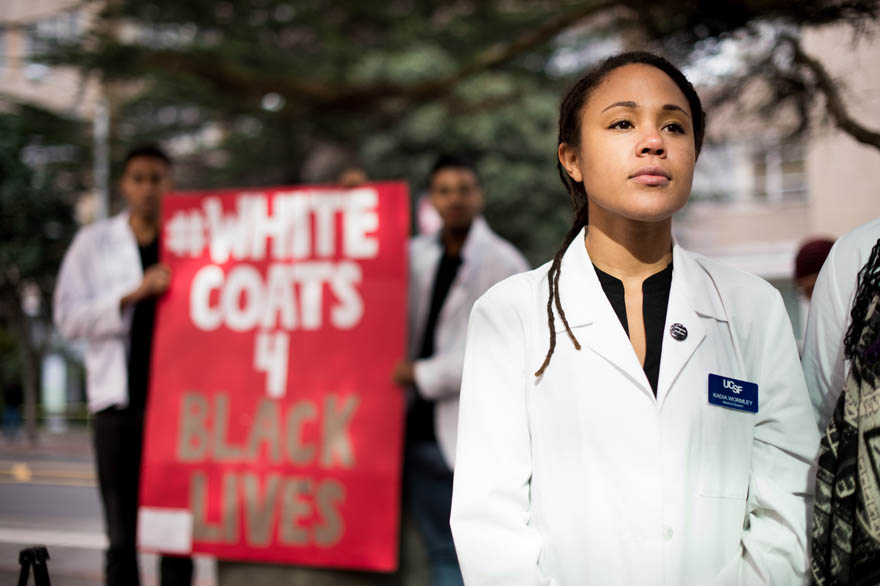
Social Justice
The Multicultural Resource Center is committed to curating programs and initiatives that will support our vision to transform our perspective of health science through a social justice lens, bringing us closer to health justice. As a dedicated resource center, we actively contribute to the education of our campus learners. We strive to build upon current experiential and didactic learning tools for students, with consideration to intersectional identities, professional discipline, and social justice. We hold an a priori conceptualization of social justice as the equitable distribution of opportunities (and privileges) and believe that it is our (institutional) obligation to challenge the status quo and work towards social change that positively impacts those who are marginalized.
Social Justice is a process, not an outcome, which
- seeks fair (re)distribution of resources, opportunities, and responsibilities,
- challenges the roots of oppression and injustice,
- empowers all people to exercise self-determination and realize their full potential,
- and builds social solidarity and community capacity for collaborative action.
Source: Center for the Study of Social Policy: Ideas into Action
"Social justice work as scholarship and professional action are designed to change societal values, structures, policies, and practices, such that marginalized groups gain increased access to these tools of self-determination." –Goodman et al, 2004
Utilizing an existing framework on cultivating social justice change agents (Goodman et al., 2004), we have identified three core values that will provide a foundation for initiatives designed to support our institution at large and student learners in ongoing and active engagement with social justice practices.
- On-going Self-Examination: Through cultural humility, to increase our awareness to existing biases and inequities in departments, greater institution, and ourselves.
- Sharing Power: To the extent possible engage in consensual decision-making within powered-structures (e.g., student –staff/faculty; institution –community), whereas "expertise is understood as another source of information rather than the best or the most 'objective' of the sources; and the possibilities and limits of shared power are made explicit". (Brabeck & Brown, 1997; Goodman et al., 2004
- Giving Voice: "Voice…as a kind of mega-metaphor representing presence, power, participation, protest, and identity" (Reinharz, 1994). Feminist theory underscores the importance of advocating for oppressed, marginalized, and underrepresented groups by amplifying their voices both within and outside the institutional confines
Through continued engagement, it is our hope that we actualize our aspirational values in equity and inclusion, developing an institutional culture where social justice will always shape the ways in which we research, practice, and educate within the health science disciplines.


